Caller ID Types in Dialer Profiles
Updated
Choosing the right Direct Inward Dialing (DID) type is essential for the success of your outbound campaigns. Each DID type offers distinct advantages based on your campaign goals and requirements. This article provides an overview of the four available DID types to help you make an informed choice.
Note: The Voice Application setup has the support for multiple Caller IDs across different connections or providers. While configuring a voice application with multiple connections, users can now assign specific Caller IDs based on the associated connection. Additionally, when setting up Caller ID settings, users has the option to select a DID number for each connection within the voice app.
1. Fixed DID
Description: With the Fixed DID option, campaign managers can manually select Caller IDs to be used for all outgoing calls.
Use Case: Ideal for campaigns where specific Caller IDs need to be associated with the campaign, such as branding or compliance requirements.
Advantages: Provides control and consistency over Caller IDs used in the campaign.
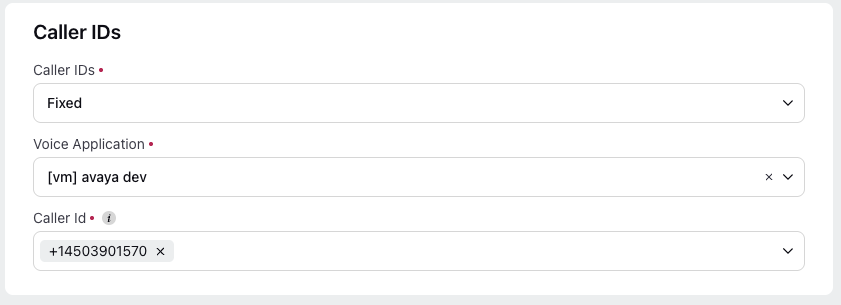
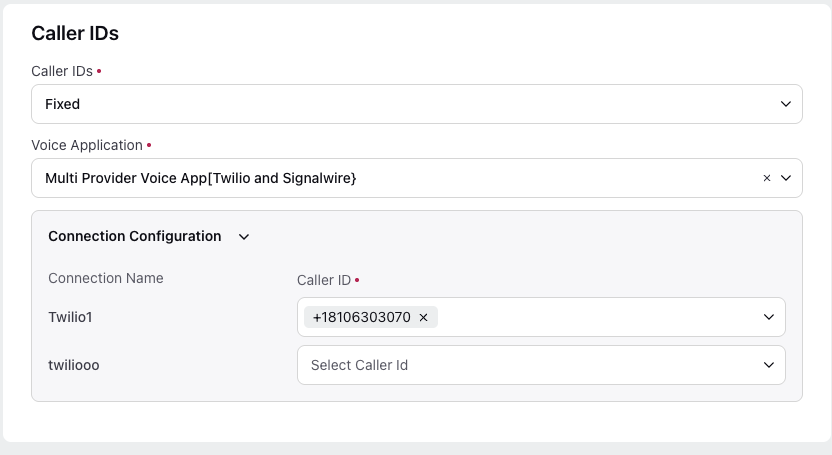
2. Time Based DID (Call DID Scheduler)
Description: The DID Scheduler allows campaign managers to define a schedule for Caller IDs. For instance, Caller IDs can be assigned for specific time periods, such as next week or next month.
It is possible to add multiple DID schedules to a single Call DID Scheduler. This helps reduce redundancy; however, a single Call DID Scheduler can only have one voice application.
Use Case: Useful for campaigns with varying time-sensitive requirements, ensuring the right Caller ID is used at the right time.
Advantages: Offers flexibility in managing Caller IDs based on campaign timing.
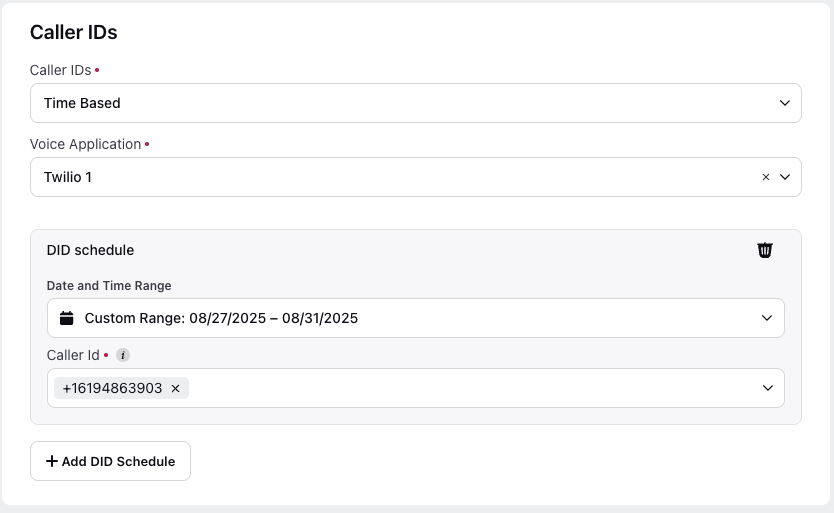
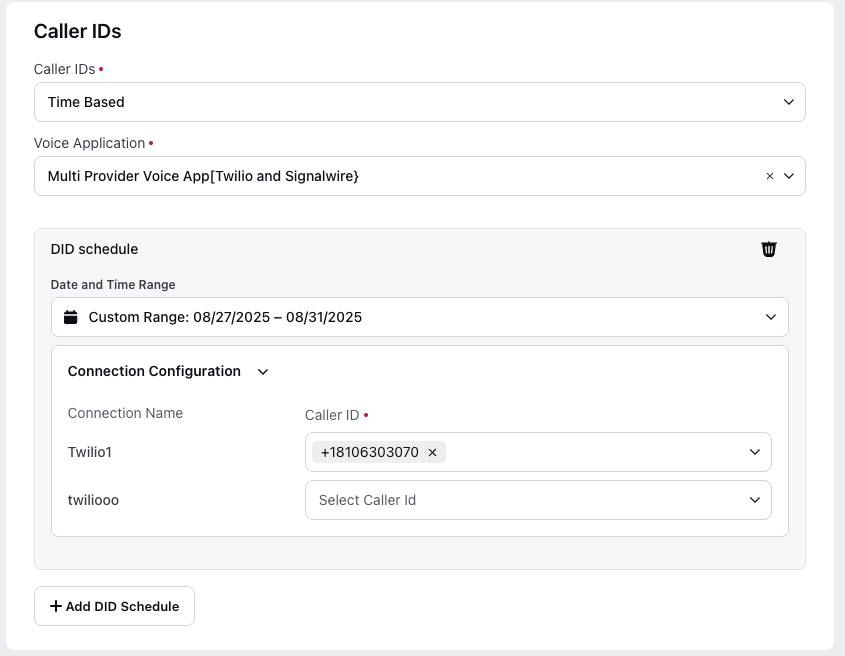
3. Attribute Based DID (Call DID Scheduler)
Description: Attribute-Based DIDs leverage profile and lead attributes, such as titles like "Mr." or "Mrs.", to personalize caller identification.
It is possible to add multiple attribute base configs to a single Call DID Scheduler.
Use Case: Ideal for campaigns requiring personalized Caller IDs tailored to specific user attributes, thereby elevating the customer experience.
Advantages: Facilitates customization based on individual attributes, resulting in enhanced engagement and customer satisfaction.
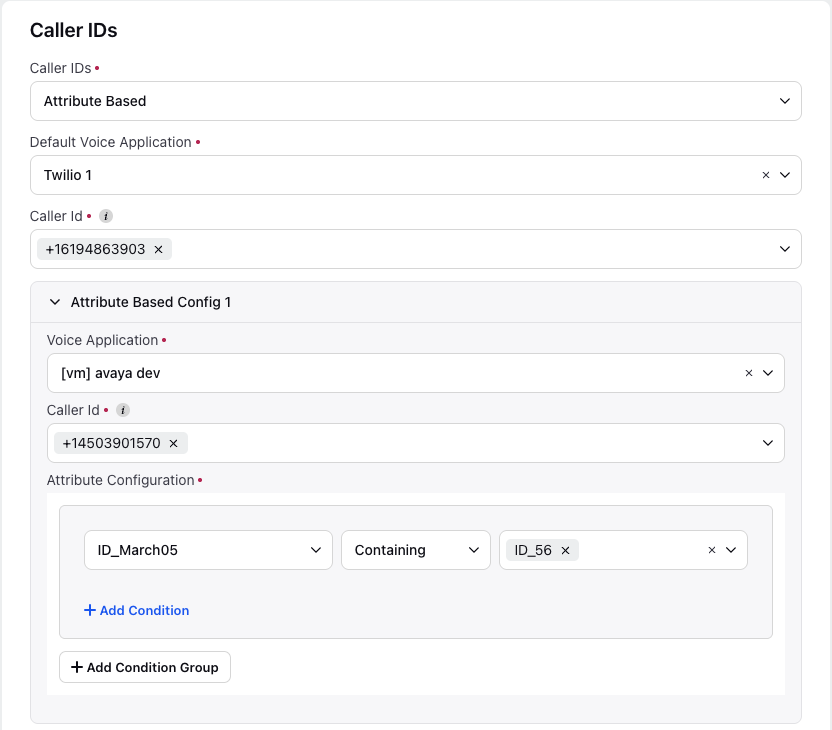
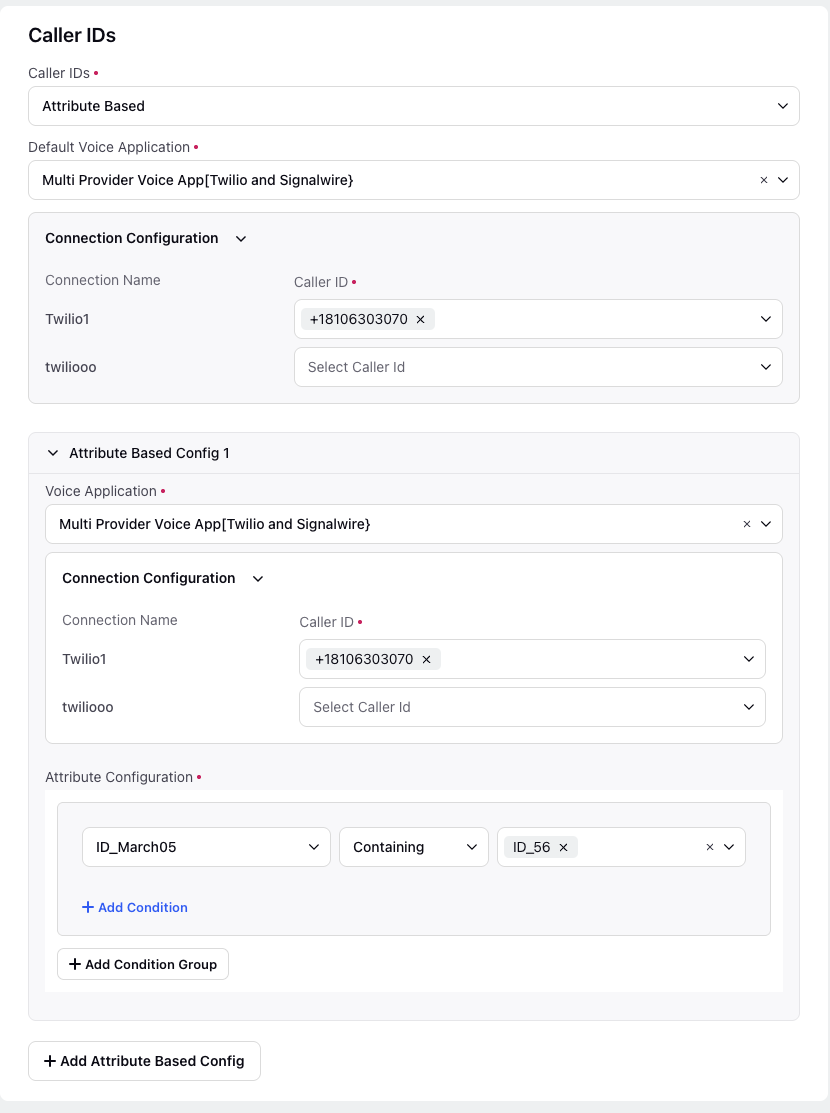
4. User Based DID
Description: User-Based DIDs are utilized in virtual relationship management. Campaign managers can define Caller IDs based on user custom fields.
Use Case: Suited for campaigns where Caller IDs need to be personalized for each user, enhancing the customer experience.
Advantages: Enables customization based on individual user attributes, improving engagement.
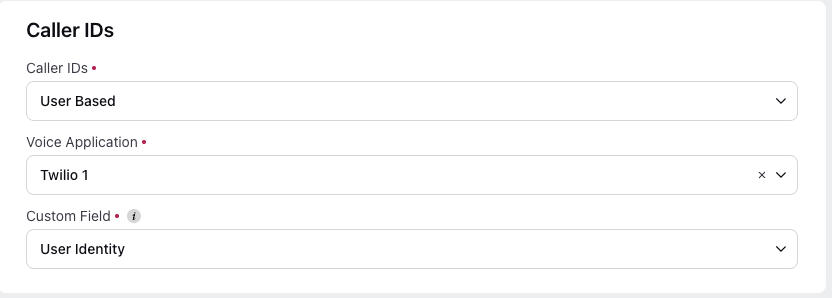
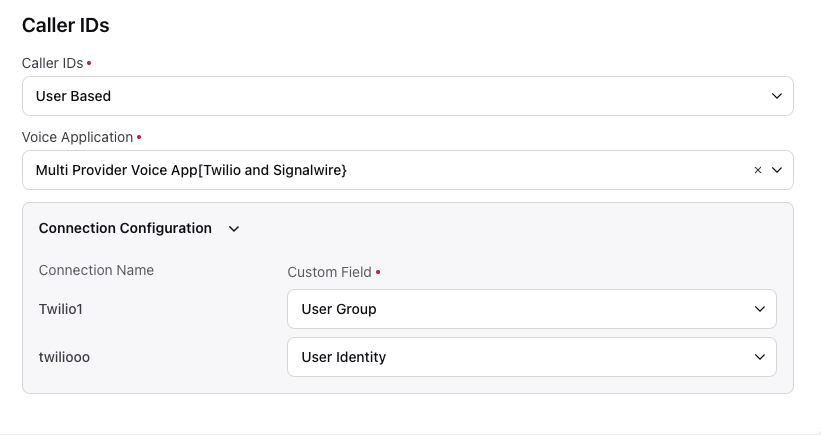
5. Profile Based DID
Description: Profile-Based DIDs allow users to define Caller IDs based on customer phone numbers. For example, specific Caller IDs can be associated with customers from particular geographic regions.
It is possible to add multiple profile base configs to a single Call DID Scheduler.
Use Case: Valuable for campaigns targeting specific customer segments or geographic areas, ensuring a tailored approach.
Advantages: Enhances personalization by matching Caller IDs with customer profiles.
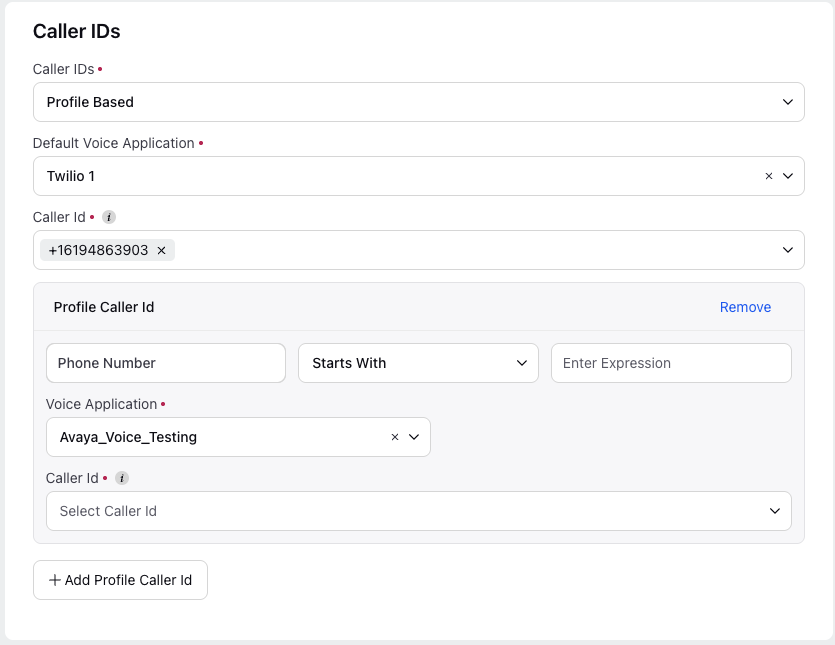
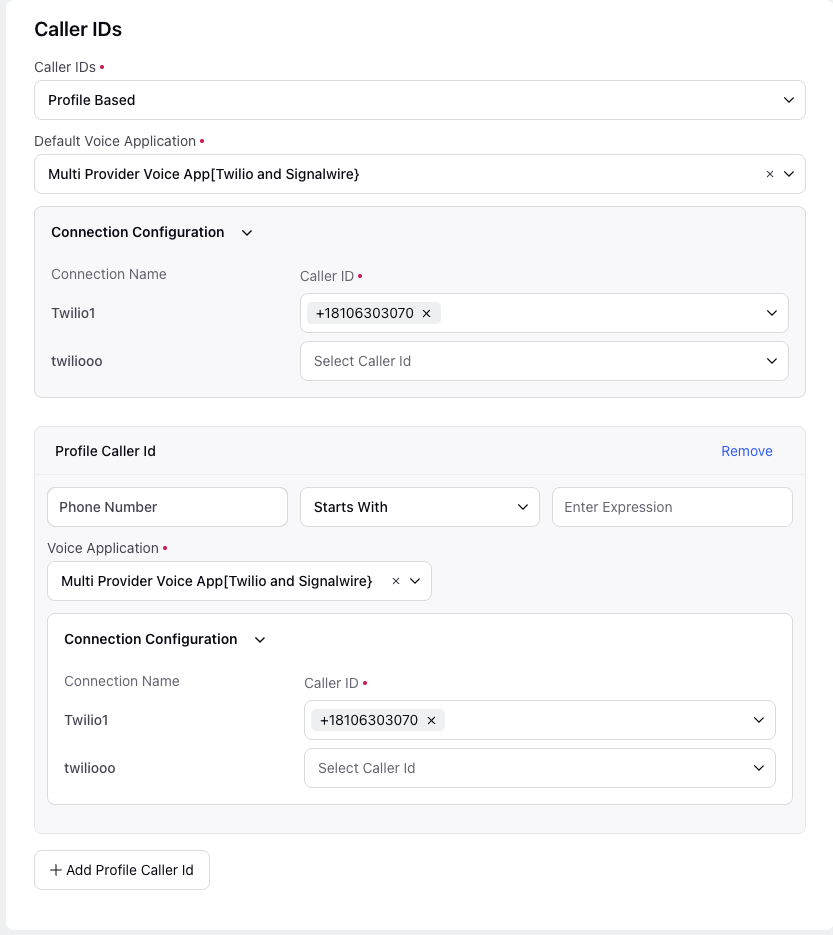
6. Campaign Based DID
Description: Campaign-Based DIDs enable users to assign Caller IDs based on specific campaigns.
Multiple campaign configurations can be added to a single Call DID Scheduler.
Use Case: Particularly valuable when targeting specific customer segments or geographic areas with tailored marketing campaigns.
Advantages: Improves personalization by aligning Caller IDs with campaign parameters, enhancing engagement and response rates.
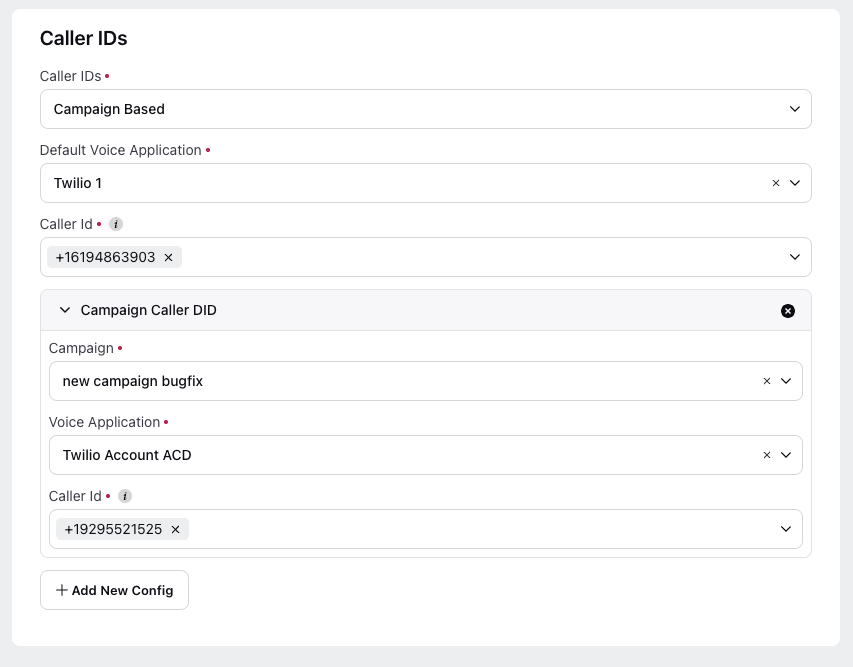
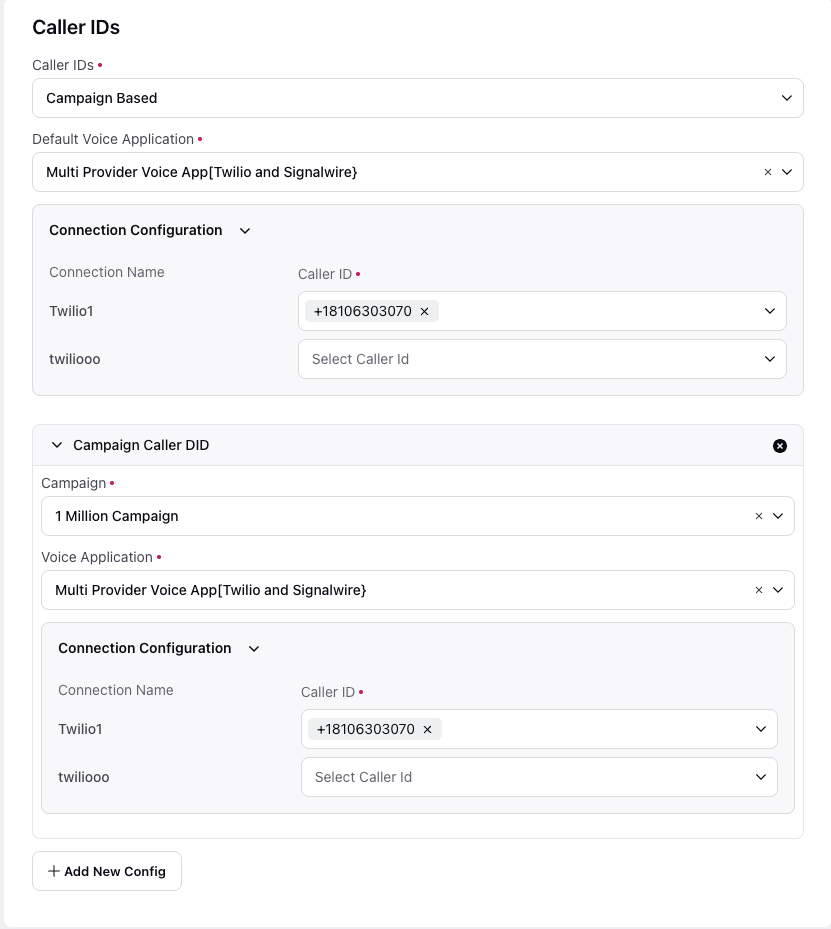
Choosing the Right DID Type
Selecting the appropriate DID type depends on your campaign's goals, compliance requirements, and need for personalization. Consider the following factors when making your choice:
Campaign Objectives: Determine whether branding, compliance, personalization, or geographic targeting is a primary campaign objective.
User Attributes: Assess if your campaign relies on user-specific data for Caller ID selection.
Customer Segmentation: Consider if your campaign targets specific customer segments or regions.
Time Sensitivity: Evaluate if your campaign requires scheduled changes in Caller IDs.
Selecting the right DID type is a crucial step in optimizing your outbound campaigns. By understanding the distinct advantages and use cases of each option, you can make an informed decision that aligns with your campaign's goals and requirements. Whether you choose Fixed, DID Scheduler, User-Based, or Profile-Based DIDs, your choice should enhance the effectiveness and success of your campaigns.